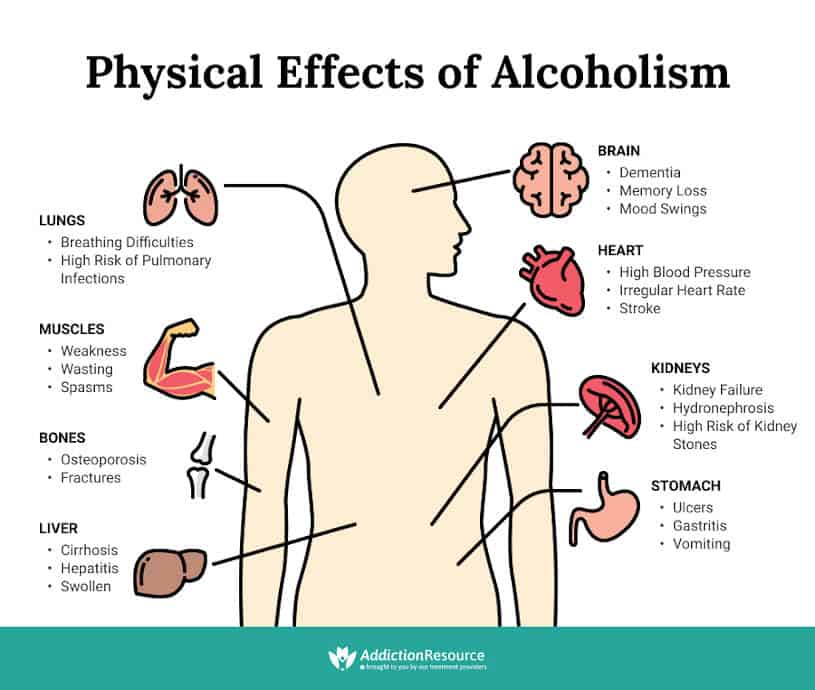The mild effects of alcohol include improved well-being or even light euphoria when it first impacts the brain. That’s what attracts people who want to relax. When a person consumes much alcohol in one sitting, the effects become not so pleasant - poor coordination, slurring of speech, blurred vision, vomiting, and more. Also, it has a dis-inhibiting effect when the person is more likely to do the things they wouldn't usually do. That’s why many people get into trouble by acting stupidly or irresponsibly under the influence.
Regular heavy drinking can provoke different illnesses, as you can see in the infographic. It weakens the user’s immune system, making the body a much easier target for diseases that are not directly related to alcohol consumption. For example, chronic alcoholics are more likely to get pneumonia and tuberculosis than people who don’t drink too much.
People who drink alcohol to the point it interferes with their family, social or professional life, or with their physical or mental health should contact a doctor to discuss the problem. AddictionResource authors say that alcoholism is a treatable disease. Many treatment programs and approaches are available to support people who want to recover.
